“Girls don’t like playing video games.” It’s time to get rid of this age-old myth.
Numbers don’t lie and if you look at the stats, about 46% of the U.S. gamer population is female. There are lots of reasons this misconception exists, but thankfully, there has been a shift in recent years, where more and more women have begun finding their voice and flourishing to prove this myth wrong. And it all starts at a young age. That’s where Girls Make Games steps in.
My name is Laila Shabir and I am the founder of Girls Make Games. Five years ago I started out on a mission to show young women around the world that there’s a place for them in gaming.
In 2014, we launched , a summer camp for teaching young women game development and offering them a home to express their shared love of playing and creating video games. I’m reminded of a time when I spoke to a mother after camp and she told me that her daughter came home after the first day and enthusiastically cheered, “Mom, I found my people!” We continue to hear the same years later.
Now, five years later, we just wrapped up our biggest summer camp season to date and it all culminated at the end with “Demo Day.” This was the chance for the top five teams from around the nation to come together at PlayStation’s headquarters in San Mateo, California, and present their demos to a panel of industry leaders: Shawn Layden, Chairman of Sony Interactive Entertainment Worldwide Studios; Siobhan Reddy, Co-Founder and Studio Director, Media Molecule; Helen Chiang, Head of Minecraft Franchise; Reiko Ninomiya, Director, Product Localization, Nintendo; and Deepthi Menon, SVP, Words with Friends at Zynga.
“What I enjoyed most was having fun at the camp and everyone being so nice,” said Team Banana, one of this year’s five finalist teams. “We really liked making new friends and playing video games.”
Team Atlantis even found ways around summer vacation time and made it a point to balance their work with fun, “When people started going on vacation that was hard to communicate but we had a shared google doc so we could keep track of our game and work that needed to get done. But all 4 of us were, I think, very focused on getting what we need to get done and then taking pause and then finding time to goof off.”
But through the fun and games, these GMG campers knew that they had work to do and overcome unexpected obstacles along the way. “I think the hardest thing was making the planting tree mechanic because I worked on that so I stayed in on break and just focused on that…and not goofing around,” team GG told me.
Team Short Stack had loading errors when trying to complete their demo. “I think the hardest thing for me was my computer and Stencyl (game engine) bugging out and having to restart my computer a lot. I really owe it to my team for just keeping at it, not stressing about it, not trying to think about it, and just trying to get it done.”
While at Demo Day each of these team presented their projects and competed for the Grand Prize – having their game developed professionally Kickstarted and published!
[youtube https://www.youtube.com/watch?v=zBO1O9pjkAw&w=1032&h=581]
This year’s Grand Prize winning team? Team Atlantis with their original game, What They Don’t Sea. In WTDS you play as a marine researcher with the Rachel Carson Research Organization, RCRO, who has been sent to collect samples of a special kelp for an alternative energy project.
When asked about the inspiration for the game, the team said they were inspired by their collective fears of deep oceans and the mysterious creatures that live there, and their love for beautiful art. Team members Twyla, Catie, Claire and Riley contributed to the game’s development, including art, animation, and programming. They even made their own sound effects — the sound of air bubbles, for example, came from playing around with a faucet in the sink at camp!
Demo Day was a massive success for all of this year’s contestants. After the celebration and fanfare died down, I asked Team Atlantis if they could share a piece of advice for aspiring game makers out there. “PLAN!” they responded. “Start out knowing approximately what you’re doing before you start on anything. Get the mechanics of what you want down and figure out what you are willing to cut off.
“Work as a team,” they continued, “because you can’t really make a game by yourself. You can’t come up with all the ideas. There might be some really good ideas your team members have, so don’t shut people down, just listen to them. The more the merrier — if you incorporate other voices into your game it’s cooler and it’s just a more unique idea.”
Every year, I’m blown away by the creativity and originality of the games created, and simultaneously filled with hope for the future of the industry.
Registration for 2020 summer camps will open in November, and we offer up to 100% need-based financial assistance thanks to GMG’s generous sponsors. If you’re unable to join us at one of our 10 locations, you can still get your feet wet with game dev tutorials (Unity and Stencyl) available on the .
Website: LINK
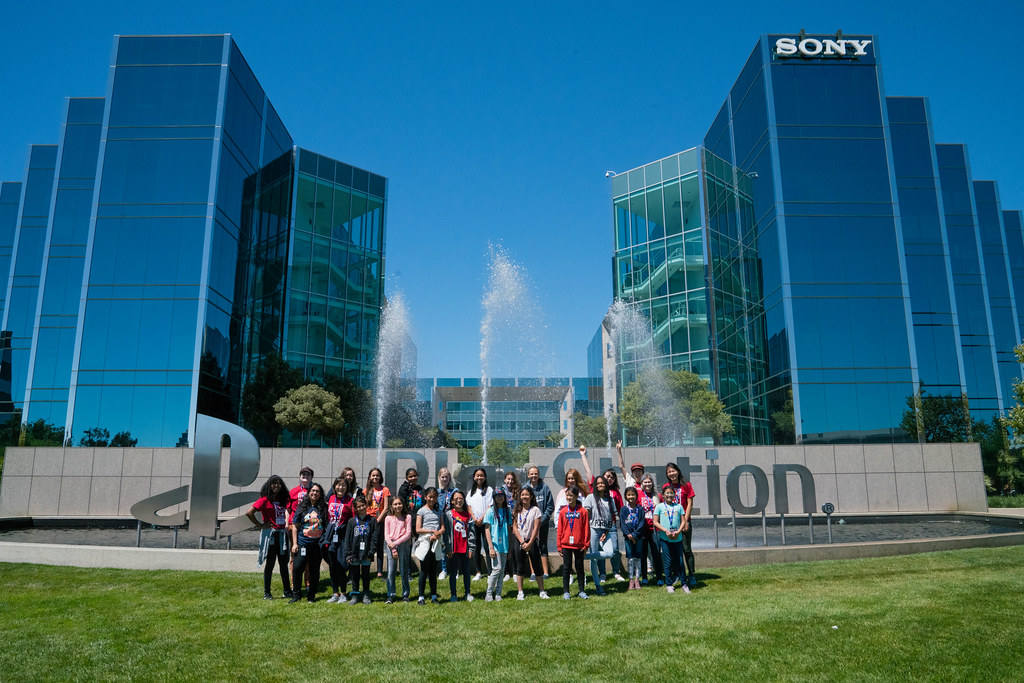
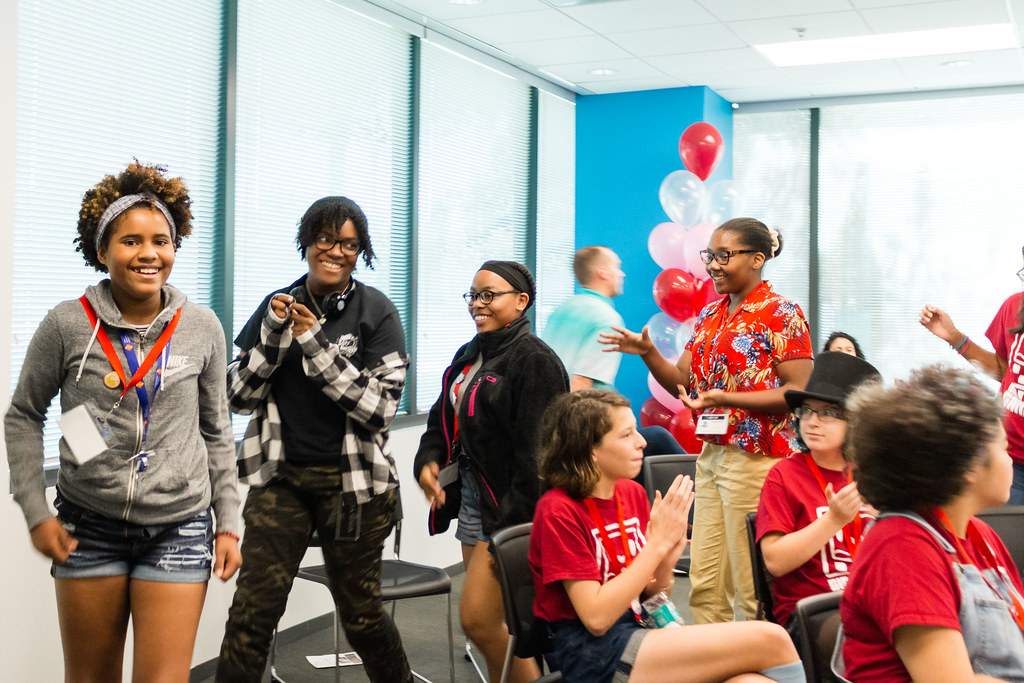
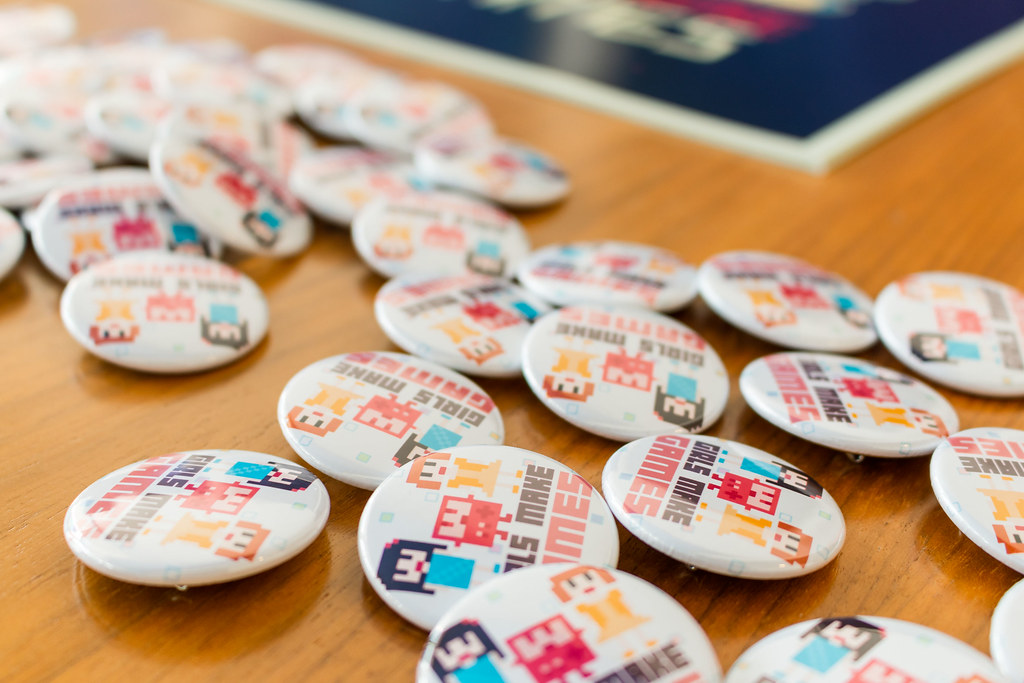
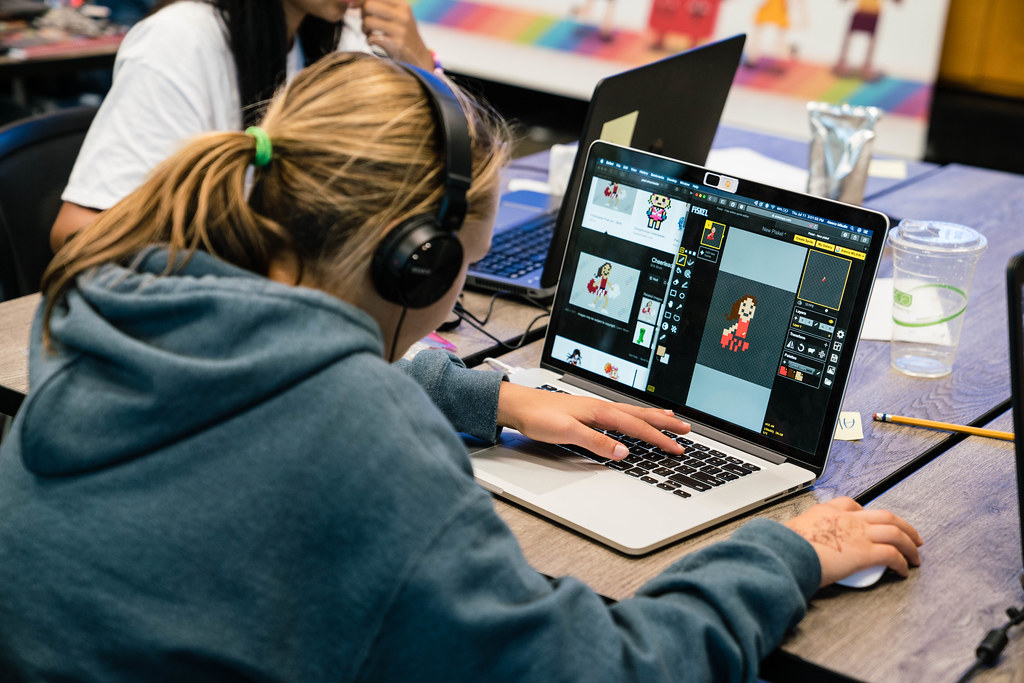
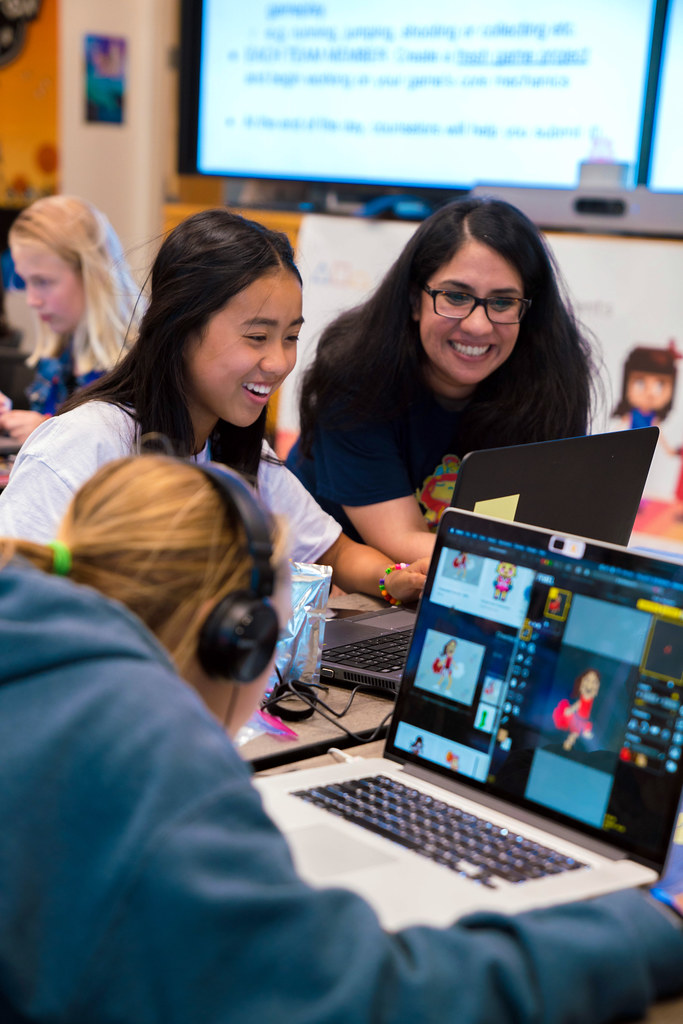
Schreibe einen Kommentar
Du musst angemeldet sein, um einen Kommentar abzugeben.